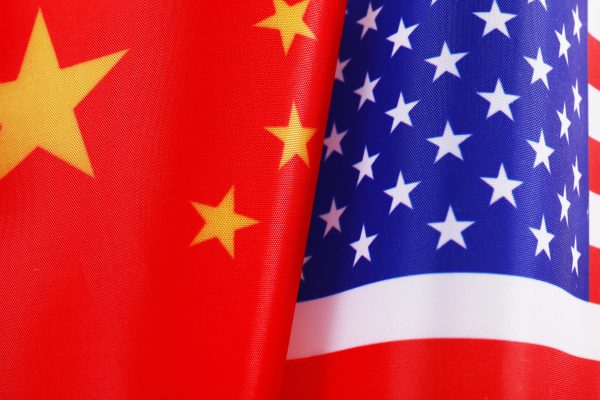Copyright thediplomat

As U.S. President Donald Trump prepares to meet Chinese Communist Party General Secretary Xi Jinping in South Korea, the question is not whether Trump can strike a deal, but what he is willing to surrender to claim one. Eager to declare victory, he risks conceding more than our country gains. The Trump administration touts an ill-defined “framework” it says will avert a 100 percent tariff hike, resume Chinese soybean purchases, pause China's rare earth export controls for a year, and finalize a TikTok deal. Yet we still do not know what the administration offered in return – or whether it gave up too much for easily reversible concessions that fail to protect Americans from the root causes of Beijing’s economic and military aggression. If Trump trades away America’s principles, technological security, alliances, or credibility for temporary relief, Beijing will see weakness, not strength, and grow only more emboldened. At the heart of our strategic competition is Beijing’s predatory economic model, which has cost American workers dearly. Since China’s entry into the World Trade Organization in 2001, the United States has lost 3.7 million jobs tied to the trade deficit, as China’s intellectual-property theft drains up to $600 billion a year, hollowing out middle- and working-class communities. Rather than leading a united front with allies to confront these abuses, the Trump administration has imposed blanket tariffs that hit working families and seniors hardest, while creating uncertainty that discourages investment. The Congressional Budget Office recently confirmed these tariffs have contributed to inflation, even as the Trump administration has struggled to secure any meaningful concessions from Beijing. Instead, the administration has often trained its sights on America’s allies, derailing trade talks with Canada – our second-largest trading partner – after raging over a television ad quoting Ronald Reagan criticizing tariffs. Similar outbursts toward South Korea, Brazil, and India have rattled key economic partners and businesses alike. This policy chaos isolates America, weakens our leverage, and gives Beijing space to exploit the divisions we unnecessarily create. These missteps have strategic consequences: every weakness in our alliances, supply chains, or economic position limits America’s ability to deter aggression abroad. These policy failures are not isolated. They reveal a deeper erosion of America’s state capacity and the tools that once underpinned our leverage. This year, the administration has relentlessly weakened core pillars of national strength: diplomacy, research, workforce, and industry. A prolonged government shutdown has handicapped export-control enforcement and delayed aid to farmers, while draconian cuts to foreign aid, science, and cybersecurity programs undermine our ability to lead, innovate, and defend ourselves. Meanwhile, the Chinese Communist Party has demonstrated the leverage at its disposal. China produces 90 percent of the world’s refined rare earth elements and most of the high-grade magnets used in advanced weapons and clean-energy systems. Beijing’s export rules set to take effect in November would require companies worldwide to seek Chinese approval before selling products containing these materials. U.S. Treasury Secretary Scott Bessent says Beijing will delay the restrictions for a year, yet China can reimpose this chokehold anytime. Reports that the White House may further relax chip export limits, which are essential to protecting our national security, for these concessions display the same shortsightedness. America cannot trade away its long-term technological edge and security for promises Beijing can abandon overnight. The pattern extends to regional security. Xi has strengthened ties with Russian President Vladimir Putin and North Korean leader Kim Jong Un, while intensifying pressure on Taiwan. In contrast, Trump has disparaged NATO, undermined commitments to Taiwan, and alienated allies. His claim that “China doesn’t want to do that” regarding a Taiwan invasion betrays a dangerous complacency as China’s military incursions grow. America must ensure Taiwan can defend itself, not barter away a democratic partner and technology powerhouse to end a trade war we started without a strategy. While U.S. Secretary of State Marco Rubio recently claimed that “no one is contemplating” abandoning Taiwan for favorable trade terms, Trump has repeatedly questioned America’s longstanding, bipartisan commitment to that democracy. Deterrence can fail not only when Beijing sees us as weak, but also when it sees us as too divided to act effectively. This week’s meeting in Gyeongju must serve our national interests, not simply those of the president. If Trump affirms guardrails on technology, secures market access for American farmers and manufacturers, reaffirms deterrence in the Indo-Pacific – including for Taiwan – and ensures that any deal complies with U.S. law, he will have advanced U.S. security. But if he sacrifices those assets and commitments for fleeting promises or headlines, he will have weakened America, while confirming Beijing’s belief that this White House will cave to pressure. True strength is measured not by photo ops or fleeting deals but by resilience, the power of our innovation and industry, and the credibility of our commitments. If this administration forgets that lesson, it risks mistaking spectacle for strategy and leaving the American people more vulnerable as a consequence.



